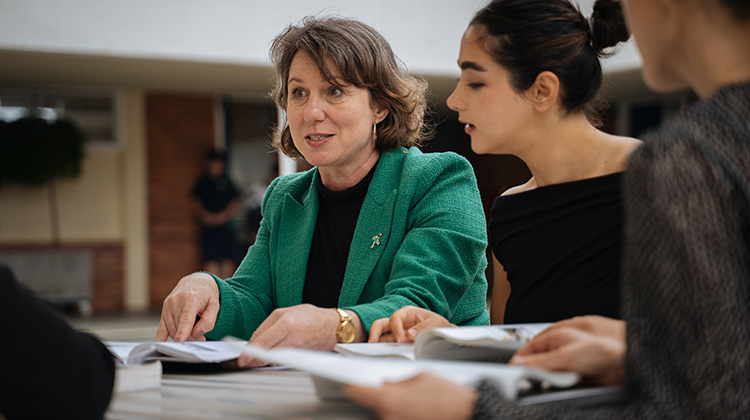Understand AI and Teach It

AI will eventually affect everything we do and a new ACARA online resource for teachers to help students develop their understanding of how AI works, the elements that comprise it, and its responsible and ethical use is now available.
Through the new ‘Curriculum Connection’ resource teachers will now be better able to teach AI through the Australian Curriculum, covering the learning areas of Mathematics and Technologies, the general capabilities of Digital Literacy, Ethical Understanding, Critical and Creative Thinking, Numeracy and Literacy and the cross-curriculum priority of Sustainability.
Developed in partnership with academic and teaching specialists in the AI field, the resource allows teachers and educators to develop age-appropriate learning programs based on the Australian Curriculum, Version 9.0, across a range of subjects and progression of learning from Foundation right through to Year 10.
The Curriculum Connection - Artificial Intelligence aims to equip young Australians with recognising the importance of:
• understanding how AI technologies work, helping them to better navigate their use and recognising their limitations
• understanding the different types of AI (digital tools and AI systems) and their purpose, design and uses
• understanding about the responsible use and application of AI
• critically evaluating the broader impact of AI on society and reflecting on the ethical complexities of using AI.
The new Curriculum Connection also links educators to a range of resources that have been developed to support teaching students about the concepts, skills and general capabilities necessary to understand and effectively use applications of AI or design future AI systems.
Donna Buckley, Mathematics and Cybersecurity teacher at John Curtin College of the Arts in Western Australia and the recipient of the 2023 Prime Minister’s Prize for Excellence in Science Teaching in Secondary Schools, was one of the key AI experts involved in developing this resource.
“I love this new Curriculum Connections resource on AI because it takes a holistic look at wellbeing and empowers young people to be prepared for healthy lives in the digital age,” said Ms Buckley.
“As a mathematics teacher, I look for real-world applications and the Curriculum Connections Mapping documents made it easy for me to connect the Mathematics Curriculum to the mathematics that underpins AI technologies.”
Another expert involved in the resource’s development was Erica Southgate, Associate Professor of Emerging Technology for Education, University of Newcastle. “The new Curriculum Connection on artificial intelligence offers teachers a timely, accessible, and evidence-informed resource to build their practical knowledge of AI in the classroom. It is a great first step in supporting teachers to empower their students to successfully navigate an AI world”, she said.
AI consultant, author, and former teacher Leon Furze, who is currently studying his PhD in the implications of Generative AI on writing instruction and education, also welcomed the new resource.
“The Curriculum Connection: artificial intelligence provides clear definitions for educators and links to existing curricula from F-10, supporting teachers in Mathematics and Digital Technologies, and all teachers through the General Capabilities. It brings together excellent resources for educators, students, and parents, and is aligned to the Australian Framework for Generative AI in Schools,” he said.
ACARA’s Acting CEO Stephen Gniel says, “AI technologies have the potential to improve teaching and learning opportunities for students and provide enormous benefits for education, but we also need to educate children in how to stay safe as they use these technologies.
The Curriculum Connection – Artificial Intelligence is available on the resources section of the Australian Curriculum website: https://v9.australiancurriculum.edu.au/resources.